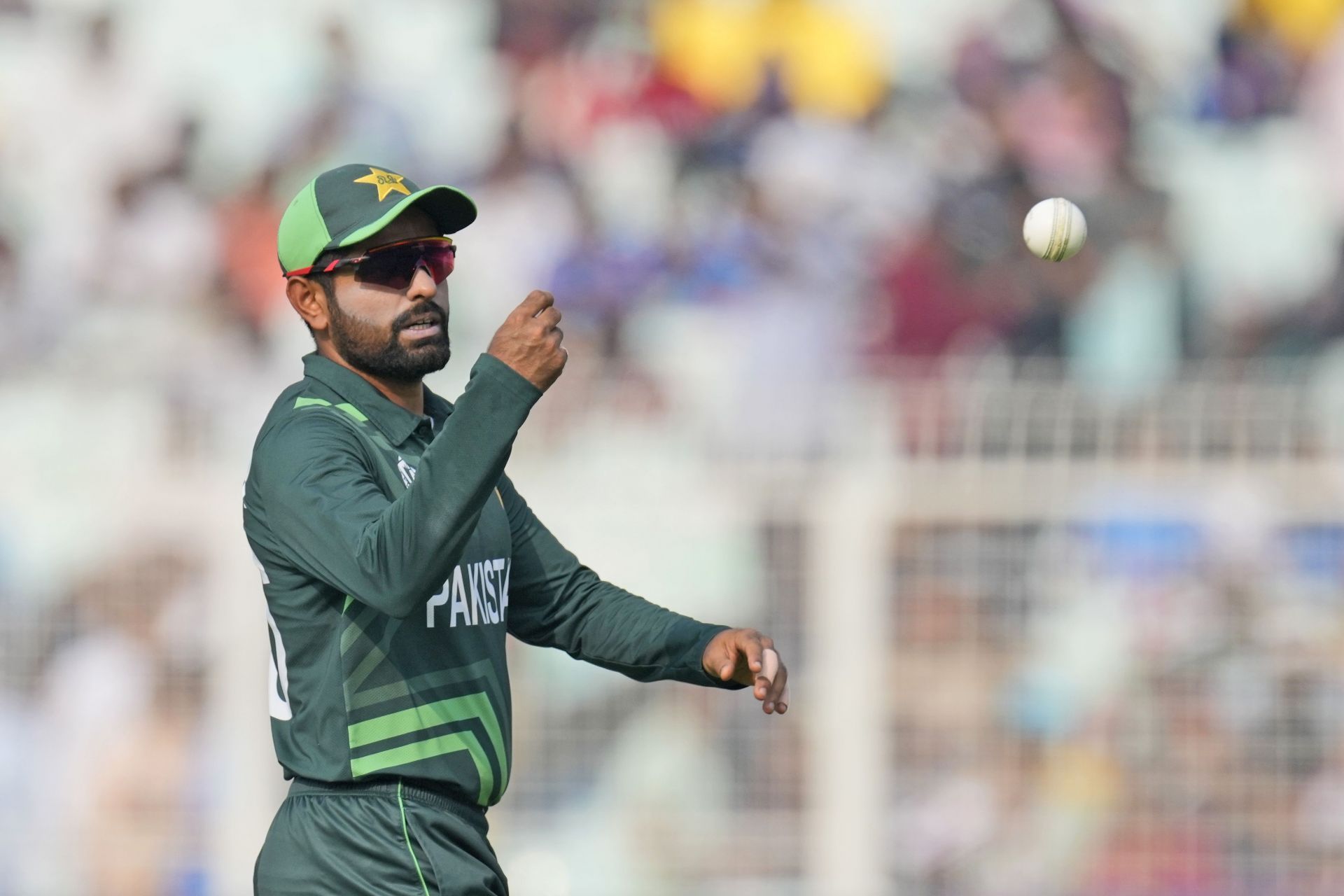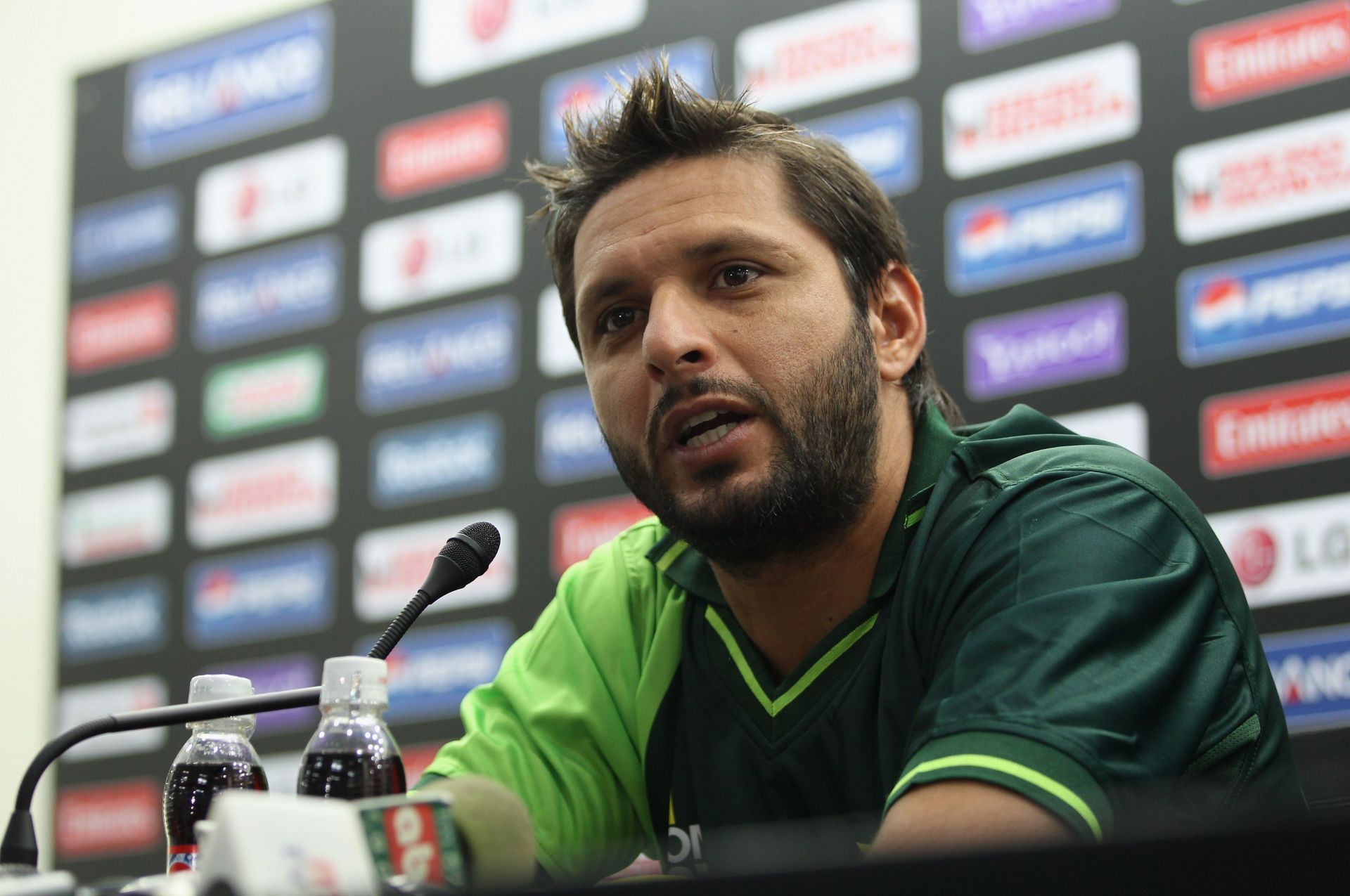
3 Pakistani captains who should never have been sacked ft. Shahid Afridi
In what came as a huge development, Babar Azam stepped down as the captain of Pakistan's men's cricket team across formats on Wednesday, November 15.
The 29-year-old took to social media to make his decision public. He put a statement on X and Instagram, stating that he feels it's the right time for him to step down as Pakistan's captain.
"Over the past four years, I've experienced many highs and lows on and off the field, but I wholeheartedly and passionately aimed to maintain Pakistan's pride and respect in the cricket world," wrote Babar.
He continued:
"Today, I am stepping down as the captain of Pakistan in all formats. It's a difficult decision but I feel it is a right time for this call."
Babar's decision to step down came on the back of Pakistan's unsuccessful campaign at the ongoing ICC men's ODI World Cup 2023. Despite winning their first two games, Pakistan lost four back-to-back matches, which led to their exit from the tournament.
During the campaign, Babar's tactical calls and strategies were also criticized, as Pakistan finished on the fifth spot in the 10-team tournament.
While some experts and pundits called for Babar to quit his captaincy role, many feel he should've continued to lead Pakistan, especially in white-ball formats. After all, it was under Babar's captaincy when Pakistan became the No. 1 ranked ODI side in the world and even claimed their maiden World Cup win over India at the 2021 T20 World Cup.
Having said that, this isn't the first time Pakistan cricket has seen a removal of a captain after a marquee event. The captaincy carousel, in particular, has witnessed abrupt changes that, in hindsight, appear questionable.
This article delves into the leadership sagas of three Pakistani cricket captains who, despite facing challenges, should arguably never have been removed from their roles.
On that note, here are three Pakistani captains who should never have been sacked.
#3 Shoaib Malik - 2007 to 2009
![Shoaib Malik (L) alongside Graeme Smith [Getty Images]](https://statico.sportskeeda.com/editor/2023/11/eb65f-17001239550565-1920.jpg?w=500)
After Pakistan's early elimination from the 2007 ODI World Cup, Shoaib Malik was appointed as the skipper across formats. His selection came as a bit of a surprise, as Pakistan could've easily chosen any other senior player for the role.
However, Malik's appointment came as a breath of fresh air, as he led Pakistan to a 2-1 ODI series win over Sri Lanka in his first assignment. Then came the 2007 T20 World Cup in South Africa, where Malik's side reached the final before coming up short in the very last over against India.
However, Pakistan's inconsistent performance raised many questions over the appointment of Malik. Pakistan lost two five-match ODI series against South Africa and India narrowly by 3-2.
One notable moment during Malik's captaincy was Pakistan's victory in the Kitply Cup in 2008, beating India in the final. However, internal issues within the team, combined with the overall inconsistency, led to his removal as captain in early 2009.
Malik's captaincy tenure was marked by a mix of highs and lows, and opinions on his leadership remain varied among cricket enthusiasts and experts.
Having said that, there is no denying that Malik always gave his team the utmost priority over his personal play.
#2 Misbah-ul-Haq (in T20Is) - 2009 to 2012
![Misbah-ul-Haq (R) with Stuart Broad [Getty Images]](https://statico.sportskeeda.com/editor/2023/11/6b9e6-17001292184444-1920.jpg)
A calm and composed personality, Misbah-ul-Haq is considered one of the most successful Pakistani captains ever. The former legend captained Pakistan across 87 ODIs, 56 Tests, and eight T20 internationals.
While his contribution as a skipper was much respected in ODIs and Tests, Misbah was abruptly removed as Pakistan's T20I captain in 2012.
His removal in the shortest format came against the backdrop of Pakistan's 2-1 T20I series loss against England in the U.A.E. in February 2012. Having said that, it was Misbah's first T20I defeat as a captain.
Prior to the England series, Misbah led Pakistan in five T20Is, where his side won every game, that too, quite convincingly. However, he was removed from duty as Pakistan clarified they wanted a fresh blood to lead the side in T20Is. Hence, Mohammed Hafeez was selected as the skipper.
Unfortunately for him, Misbah never returned to play T20I cricket for Pakistan, as the clash against England in Abu Dhabi proved to be his last T20I appearance.
#1 Shahid Afridi (in ODIs) - 2010 to 2011

One of the best all-rounders to play for Pakistan, Shahid Afridi was as enigmatic as they come. His abilities to deliver strong cameos, while being a reliant leg-spinner, saw him feature across 524 international matches for Pakistan.
However, Afridi had a fair share of controversies during his career. One of the major talking points was when Afridi took a "conditional" retirement from international cricket in 2011 after being axed as Pakistan's ODI skipper.
After weeks of tension between Afridi and the Pakistan Cricket Board (PCB), the former all-rounder was furious with the board's decision of sacking him for captaincy and took it as an assault on his self-respect.
Pakistan had a decent 2011 World Cup under Afridi's captaincy, where the side reached the semi-finals before getting eliminated by eventual champions India.
Afridi's aggressive and charismatic style of play made him a popular figure, but it also led to varying opinions on his effectiveness as a captain. According to Afridi, he took a "broken" team along with him and created a positive environment despite some glaring controversies relating to some players.
He was quick to point out that he had been conspired against and wasted no time in retiring from international cricket in May 2011. Just five months later though, Afridi shockingly turned back on his decision and withdrew his retirement. A change at the helm of affairs in the PCB was seen as the reason for Afridi's u-turn.